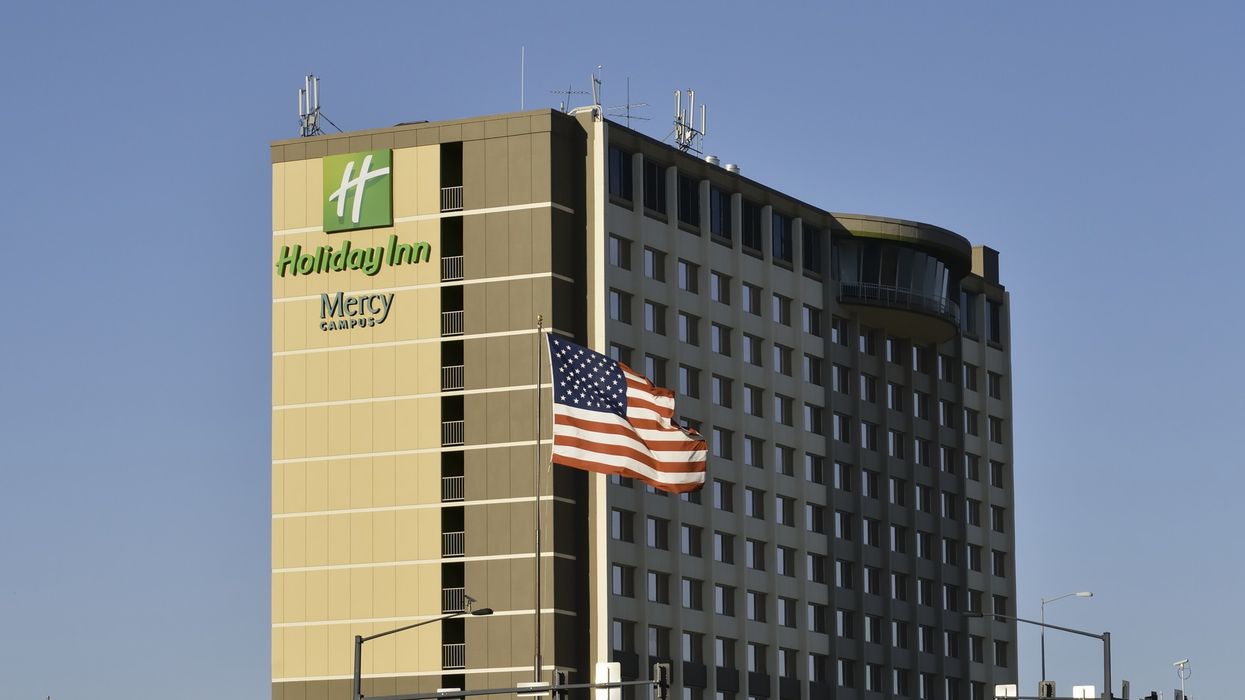INTERCONTINENTAL HOTELS GROUP reported a 3 percent increase in global RevPAR in the first half of 2024, with 3.2 percent growth in the second quarter, driven by a recovery in U.S. markets. ADR rose 2 percent, and occupancy increased by 0.6 percentage points in the first half, leading to a 6 percent rise in total gross revenue, reaching $16.1 billion.
The company's U.S. RevPAR was positive starting in April, increasing by 2.5 percent in the second quarter, IHG said in a statement. In May, IHG reported a 0.3 percent year-over-year decline in RevPAR for the Americas in the first quarter, due to a 1.9 percent drop in U.S. RevPAR.
“We are making great progress on the delivery of our strategic priorities and the clear framework to drive future value creation that we set out in February,” said Elie Maalouf, IHG’s CEO. “RevPAR growth accelerated in the latest quarter, reflecting a strong U.S rebound in the second quarter and the breadth of our global footprint, and development activity continues to increase. Together with system growth, notable margin expansion and the benefit of returning surplus capital through buybacks, adjusted EPS growth was up 12 percent.”
However, growth in the Europe, Middle East, Asia and Africa region slowed, with RevPAR up 7.5 percent for the half-year. In the second quarter, RevPAR increased 6.3 percent, down from 8.9 percent in the first quarter. In Greater China, RevPAR fell 2.6 percent for the half-year and 7 percent in the second quarter, following a 2.5 percent rise in the first quarter.
Global growth
The Berkshire, England-based IHG expanded its global footprint with a 4.9 percent increase in gross system growth year-over-year and a 3.2 percent rise in net system growth. The company opened 18,000 rooms across 126 hotels in the first half of the year, bringing its global estate to 955,000 rooms in 6,430 hotels. During the same period, IHG signed 384 hotels comprising 57,100 rooms, representing a 67 percent increase from the previous year, or a 15 percent rise when adjusting for acquisitions like Iberostar and NOVUM.
“We celebrated 126 hotel openings in the half and the signing of a record-breaking 384 properties, equivalent to more than two a day,” said Maalouf. “These included the first six openings and 118 signings from the NOVUM Hospitality agreement, which doubles our presence in the important and attractive German market. After growth of more than 7 percent in the first quarter, a very busy second quarter saw 23 percent more signings year on year or a more than doubling when including NOVUM, and this keeps us on track for net system size growth expectations.”
The global pipeline now stands at 330,000 rooms in 2,225 hotels, a 15 percent increase year-over-year. In the second quarter alone, IHG opened 11,700 rooms across 80 hotels and signed 39,400 rooms, comprising 255 hotels, a significant leap from the 17,700 rooms signed in the first quarter. This represents a 123 percent increase year-over-year in signings, or a 23 percent rise when adjusted for acquisitions.
Robust financials
IHG's revenue in the first half of the year rose 4.3 percent to $2.32 billion from $2.23 billion a year earlier. However, pretax profit fell 17 percent to $472 million from $567 million, the statement said. The company’s operating profit from reportable segments rose by 12 percent to $535 million, though this includes a $10 million adverse currency impact.
The reported operating profit of $525 million reflects a planned reduction in the prior System Fund surplus and no exceptional items, compared to an $87 million profit in 2023, IHG said. Adjusted EPS increased by 12 percent to 203.9¢, despite higher adjusted interest expenses and a 5.6 percent reduction in the weighted average number of ordinary shares.
“We continue to strengthen our enterprise to position IHG as the first choice for guests and owners, further improving and growing our brands, driving loyalty contribution, rolling out new hotel technology and increasing our ancillary fee streams,” Maalouf said. “Our cash generation and strong balance sheet continue to support further investment in growth, and we are confident in capitalising on our scale, leading positions and the attractive, long-term demand drivers for our markets.”
IHG made significant strides in returning value to shareholders, completing 47 percent of its $800 million share buyback program as of June 30, 2024. The interim dividend was raised by 10 percent to 53.2¢, and combined with the buybacks, the company is on track to return over $1 billion to shareholders by the end of 2024.
In July, IHG launched the “Low Carbon Pioneers” program, uniting energy-efficient hotels that avoid on-site fossil fuel combustion and use renewable energy. This community will help IHG test, learn, and share sustainability practices, aiming to inspire others and promote carbon reduction across IHG’s portfolio.






